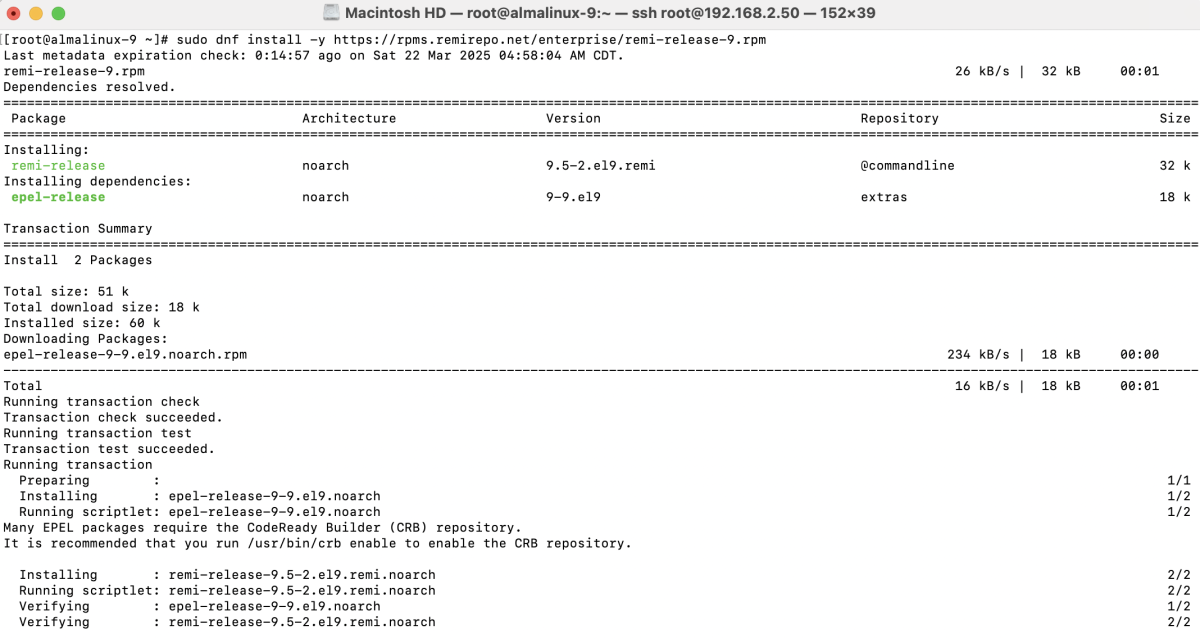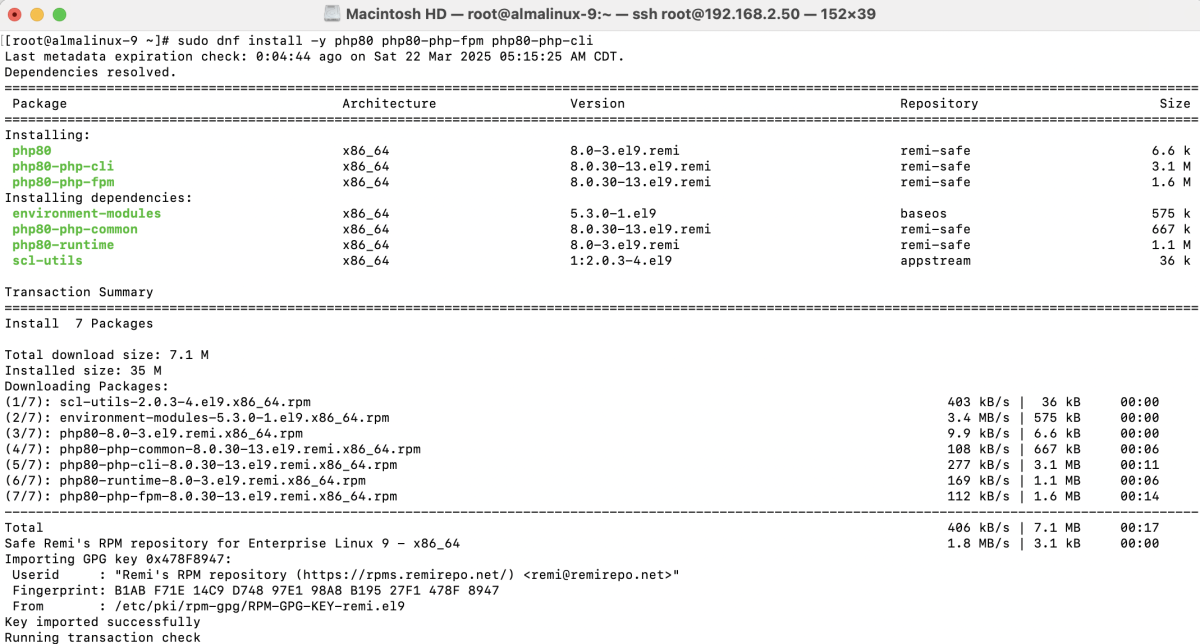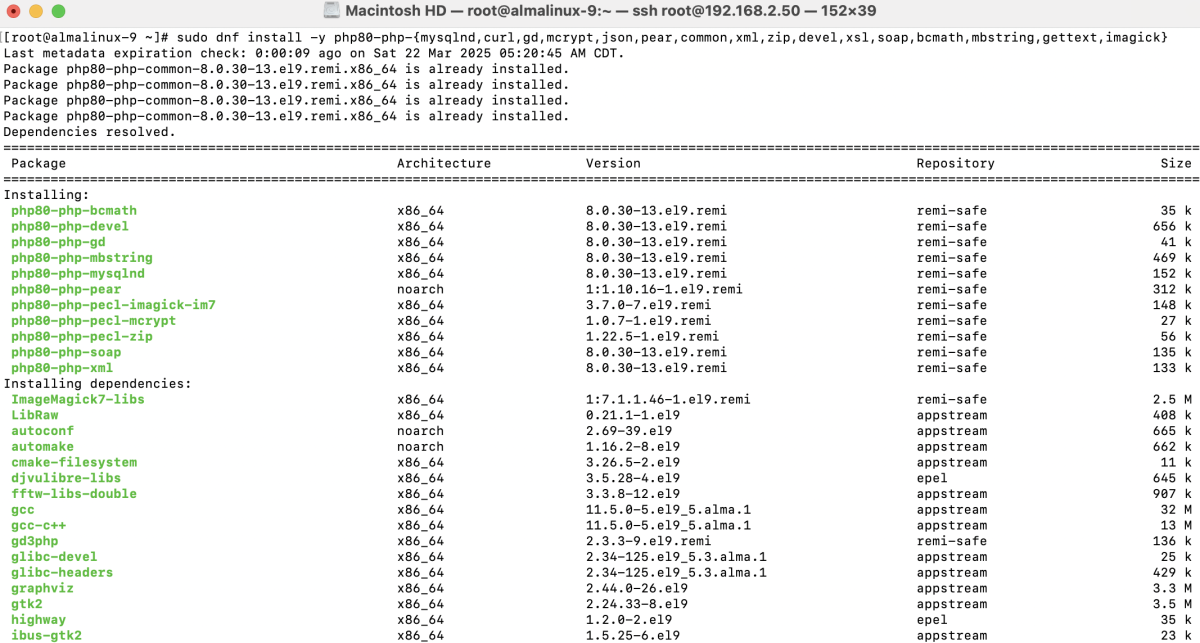To install PHP 8.0 on AlmaLinux 9, follow these steps:
Step 1 : Update the System
Before installing PHP, update your system to ensure all packages are up to date:

Step 2 : Import the PHP Remi Repository
PHP 8.0 is not available in the default AlmaLinux repository, so we need to add the Remi repository:

Step 3 : Check Available PHP Modules
List available PHP versions to confirm that PHP 8.0 is present in the repository:

Step 4 : Enable PHP 8.0 from the Remi Repository
Enable the PHP 8.0 module before installation:

Step 5 : Install PHP 8.0 Core Packages
Now, install the PHP core along with the FastCGI Process Manager (FPM) and command-line interface (CLI):

Step 6 : Install Common PHP Extensions
To ensure PHP supports various features, install commonly used extensions:

- php-mysqlnd – Enables MySQL database support.
- php-curl – Allows PHP to make HTTP requests.
- php-gd – Provides image processing capabilities.
- php-mcrypt – Handles encryption and decryption.
- php-json – Enables JSON support.
- php-pear – Package management for PHP libraries.
- php-common – Provides shared files for PHP.
- php-xml – Enables XML processing.
- php-zip – Supports ZIP file handling.
- php-devel – Required for PHP development and compiling modules.
- php-xsl – Enables XSLT transformations.
- php-soap – Adds SOAP protocol support.
- php-bcmath – Provides precision mathematics functions.
- php-mbstring – Supports multibyte string processing.
- php-gettext – Enables translation and localization support.
- php-imagick – Adds support for image manipulation.
Step 7 : Verify Installation
Check if PHP 8.0 is installed correctly:

Congratulations! You have successfully installed PHP 8.0 on AlmaLinux 9.